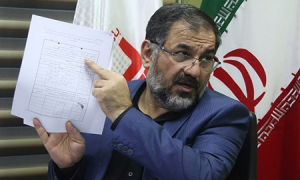An interview with Shadab Askari, one of researchers the military issues and the history of army and the author of the book “the military Baha’is during the second Pahlavi government” concerning the adventure of the Baha’is influence in the army of Pahlavi regime:
Q: Mr. Askari! Explain about the dimensions of the entrance and influence of the Baha’is in king army?
A: Late Qajar government and the beginning of Pahlavi kingdom, we are observing the extensive ovation of the Baha’is to enter into kingdom army to such an extent that it can bravely said that it was the most extensive presence of Baha’is in kingdom army. The fact is that in order to gain power in kingdom government and to gain political, military, economic and proselytizing domains which were forming the government leverages, they chose kingdom army as one of the important passage.
Q: What is the relationship between the Baha’is and the universal house of justice?
As a matter of fact, the universal house of justice possesses the divine position. Everything it says, it must be obeyed. The most interesting note is that you can’t believe in it out of the organization. It means that you must be Baha’i base on the UHJ’s rules and be the member of its assemblies. That is, a really organizational identity has been defined for its members. Now, suppose that the members of such organization are present in the army remarkably. They wanted to conquer all pillars of the government gradually.
Q: What was the origin and the reason for the Baha’is entrance into the army? The Baha’ism teaching or the political technique or both?
According to the proselytizing ideology of Baha’ism, being a military person doesn’t have any position in Baha’ism teachings. Ali Muhammad Bab issued the jihadi commandments in the beginning of his movement. Even, he assigned several verses of its book “the best stories” to fighting with enemies. According to formal narration of the Baha’is themselves, he removed Jihad issue and prevented his followers to fight. Also, Abdul Baha has negated Jihad. Consequently, it can be said that being military person doesn’t have any position in Baha’ism. However, the Baha’ism organization’s function is the opposite.
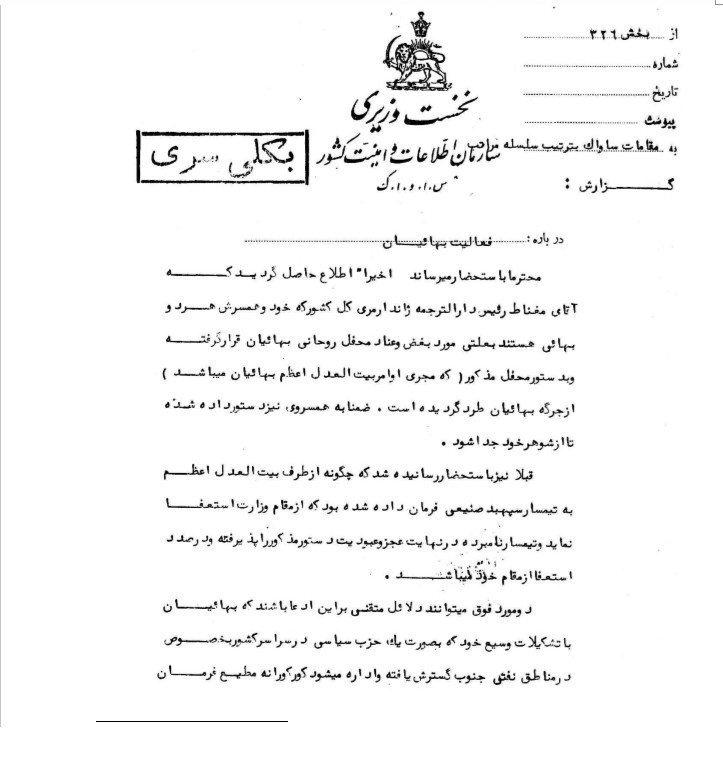
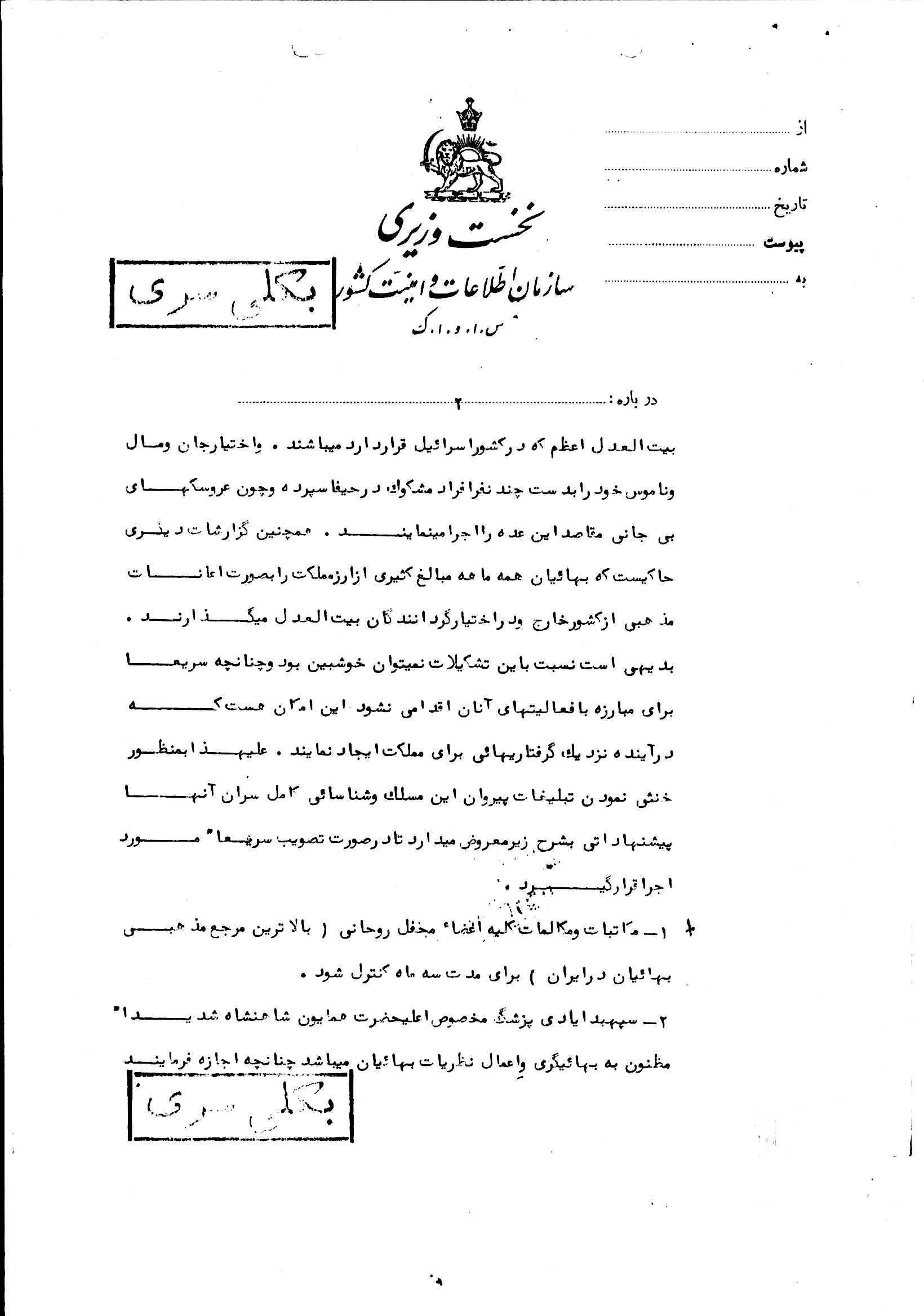
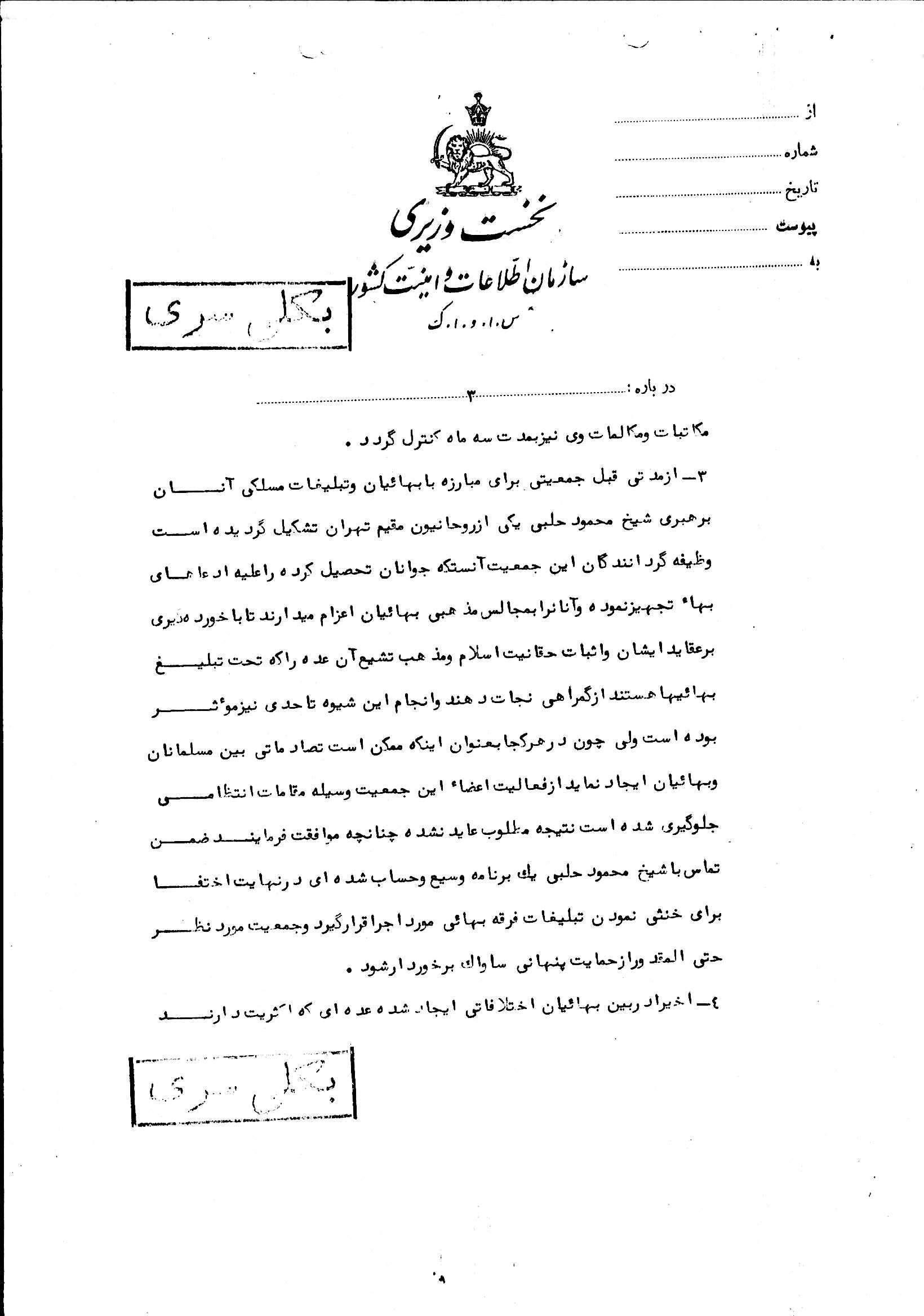
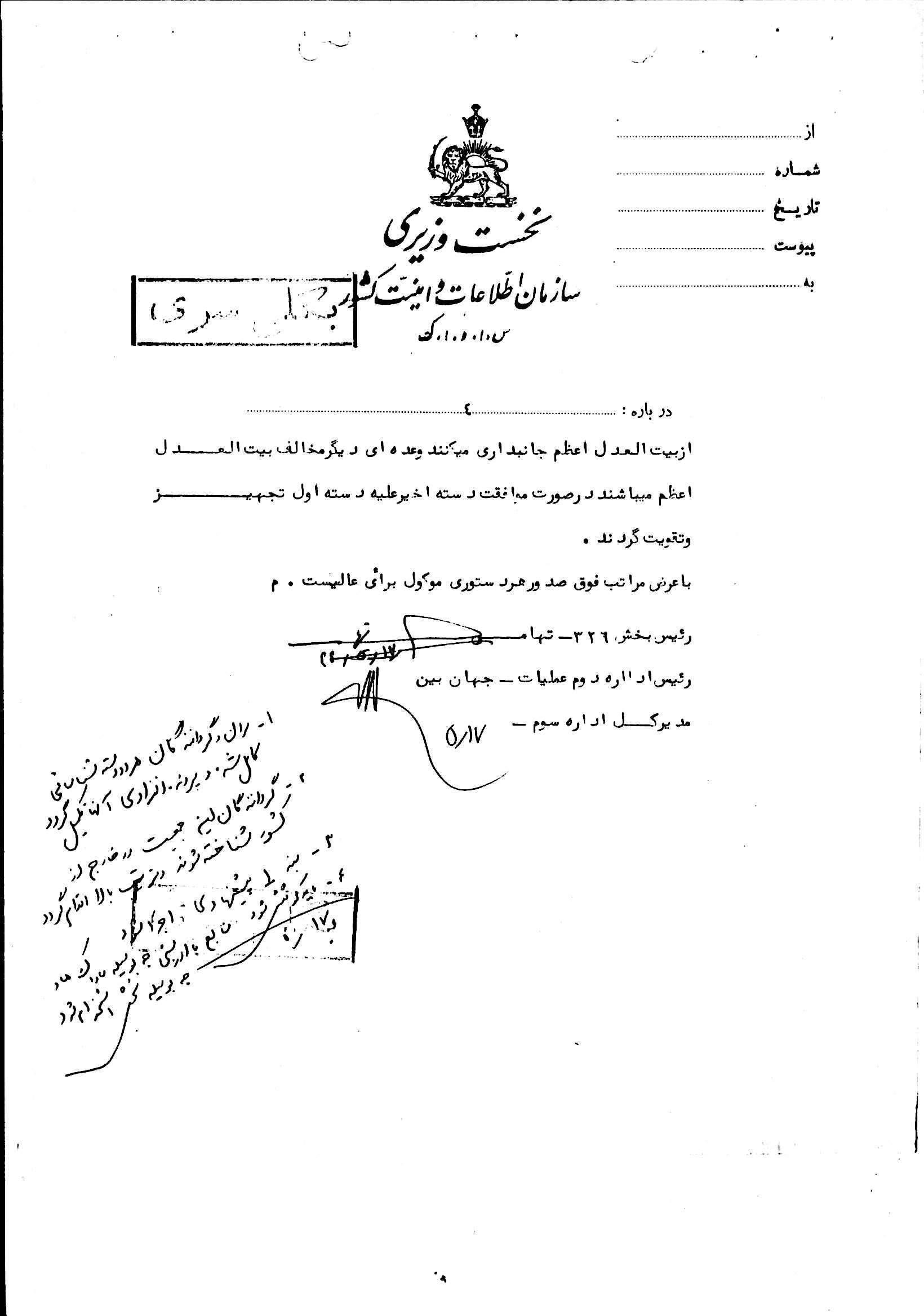
Q: How many Baha’is were there in the Pahlavi army?
According to my research during previous several years, there were 650 Baha’is in the army. I have prepared a list and introduced them. 65 Baha’is possessed the highest military positions and posts who are as follows:
Out of 18 general of the kingdom army, Fereydoun Jam, Ja’far Shafaqat and Saeed A’azazi were Baha’is.
Out of 169 military people who have become general during the years 1334 S.H. to 1357 S.H., 17 people were Baha’is. They are as follows: Abul Fath Ardalan, Asghar A’zami, Abdul Karim Ayadi, Khalil Bakhshi Azar, Ali Asghar Behseresht, Ali Bigdeli, Fereydoun Ta’eedi, Ali Muhammad Khademi Jahromi, PArviz Khosrowani, Hussein Rastegar Namdar, Abul Hassan Sa’adatmand, Ahmad Shirin Sokhan (Muhammad Ali Fallah), Asadullah Saniee, Azizullah Naeemay Kiyani, Ahmad Mazhin, Iraj Mehvari, and Samad Samadian pour.
There were 11 Baha’i major general who were as follows: Hassan Arfa’, Enayatullah Zoqi, Ali Akbar Zarqam, Shhoaullah Alaee, Ezzatullah Alaee, Gholam Hussein Golbadi, Muhammad Sadeq kabir, Ahmad Moqarrabi, Nader Yousefi, Seifullah Hemmat Isfahani, and Razavi.
There were 34 Baha’i brigadier general: Abul Fath Aqsa, Abdul Karim Ayadi, Ali Muhammad Barafroukhteh, Sasan Basari, Manouchehr Ta’eedi, Ismaeel Charkhest, Ali Akbar Derakhshani, Rostami, Mahmoud Ramzi, Arfa’, Asasi, Muhammad Sahaee, Hedayatullah Sohrab, Muhammad Shaibani, Muhammad Ali Saqari, Ne’matullah Alaee, Ataullah Alaee, Ataullah Kiyani, Noruddin Alaee, Shuaullah Majidi, Ataullah Moqarrabi Qahad, Ataullah Montaseri, Moneer Derakhshsn, Jahanqir Mehrabanzad, Zia Nikou Bonyad, Mir Fakhraee, Ferasat, Ismaeel Yazdani, Zhiyan, Moqaddami, Naderi, Hoshyar, Hesam Dehqanyar.
۵۴۰ Baha’i were busy working in the army in other degrees out of which 186 Baha’is were senior officers.
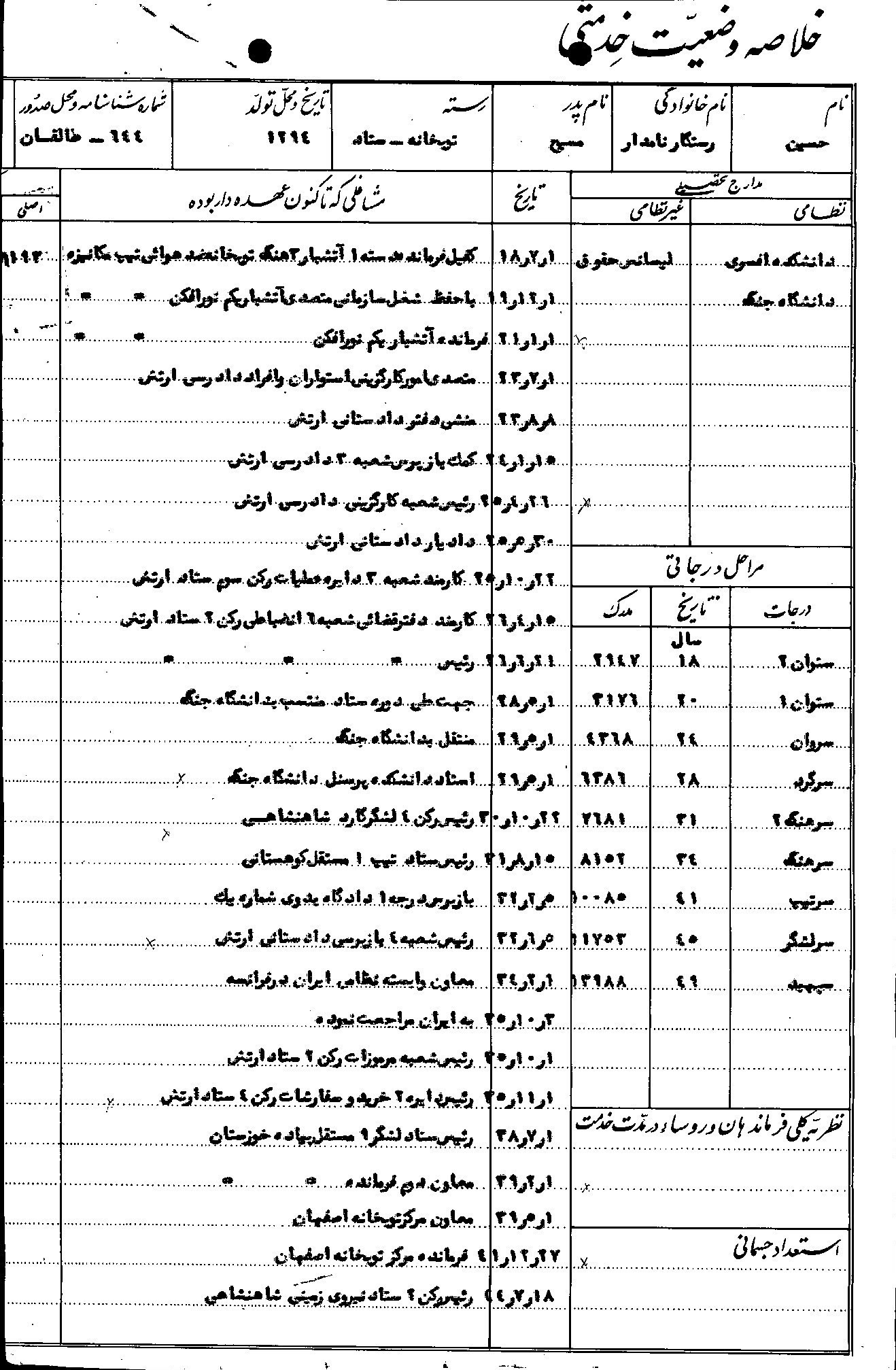
Baha’ism is not just a cult, but it is a political party or it can be said better a political organization.

